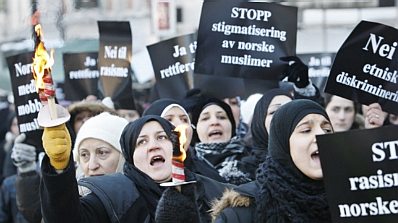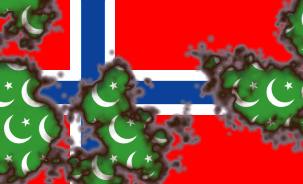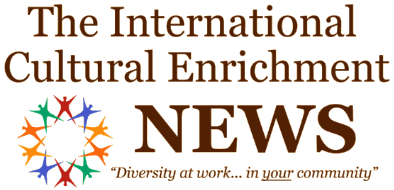One of the biggest fall outs of the intellectual decay and
moral cowardness that has afflicted the western world in modern times is the increasing
number of intellectuals who are no longer willing to speak truthfully on an ever
expanding number of issues for a variety of very disquieting reasons. When it
comes to issues dealing with religion, or more specifically Islam, many of
these intellectuals will do their utmost to try and convince the general
population that those who carry out Islamic acts of aggression and terror in the
west are simply misinterpreting their religion and that they are merely extremists
bringing their faith into disrepute. In fact this need to constantly exonerate an
ideology which is almost alone in producing terrorists today has become such a
common occurrence that one can almost describe it as a systematic pattern, just
as A comes before B and night follows day, the excuses follow every single act
of Islamic terror. In fact it has gone so far that people in the west are expecting
to be presented with such feeble excuses in the aftermath of Islamic barbarity.
The latest such grovelling exculpation was offered by the
British Prime Minister David Cameron and the mayor of London, Boris Johnson who
both maintained that the latest Islamic terrorist act in the UK had nothing to
do with Islam, despite the fact that the two Muslims perpetrators who hacked to
death the off-duty British soldier while chanting Allahu Akbar and then preceded
to justify their deeds in front of a camera by referring to the Koran and
perceived western aggression in Islamic countries. An appropriate question to
ask after having had to witness such exceptional example of cognitive
dissonance from the two esteemed British politicians would have to be; what
exactly is the true nature of the religion of Islam? What exactly is the
difference between the ideology of the so called extremists and the majority of
the ostensibly peaceful Muslims? One would assume that individuals who are making
such statements, especially those who appear in the media on a regular basis,
is at least qualified to speak on these issues and that they have the necessary
data to back up their claims. One would also assume that they have an extensive
knowledge of the religion itself and of the ideology of those that they prefer
to label as extremists.
Those who maintain that there is a distinct ideological
difference between the extremists and ordinary Muslims should really be pushed
hard on this issue and not simply have their remarks taken at face value by
gullible journalists who have no intention of pursuing the issue in an honest
manner, which sadly is the case today. Nor should the questions merely deal
with the difference in behaviour, but rather about the difference in religious ideology
and doctrine. What exactly is it that the extremists are misinterpreting in
order to justify their gruesome deeds and are these perceived misinterpretations,
according to these esteemed intellectuals, completely at odds with standard
Islamic doctrine? Anyone who has bothered to pick up a copy of the Koran and
actually read it from start to finish knows that it is an aggressive and immensely
hostile book. It is also a book that has numerous hateful verses that deals specifically
with the killing and subjugation of non-Muslims. This is a fact that cannot be
contested or somehow simply swept under the rug. Appropriate questions to ask
are as follow;
Are these hate filled verses deliberately being toned down
by mainstream Muslims and scholars as insignificant or perhaps even discredited
as relics from a completely different time and era where different values and
norms were in vogue? Are the mainstream Islamic nations distancing themselves
from these verses? Is the Muslim world
rejecting these verses or are they in fact acting upon them and doing their
utmost to emulate them?
These questions have to be answered in order to get an idea
of what is considered mainstream and acceptable today in the Islamic world. Are
there movements in the Islamic world that are vehemently opposed to the more
aggressive passages of the Koran and that are proposing that these should be
removed altogether, or are such movements pretty much nonexistent?
Dutch parliamentarian Geert Wilders made a short movie,
Fitna, in 2008 which he posted online. In it he highlighted the hate filled
Koranic verses that Islamic terrorists all over the world use to justify their
attacks, and which they use to fuel their hatred for non-Muslims. In it Wilders
has juxtaposed footage of Muslims carrying out terrorist attacks in Europe and
the USA and the relevant verses from the Koran. Towards the end of the film Mr.
Wilders encourages the Muslim world to purge the Koran of these evil verses and
cast aside its hostility towards non-Muslims and take the plunge into the
modern age. One can hear, but not see a page being torn from a book, in this
case a telephone directory, upon which Mr. Wilders informs the viewers that it
is not up to him, but the Islamic world to carry out the necessary reformation
of Islam.
A fatwa, or a death sentence was issued for Geert Wilders by
the senior leadership of Al Qaeda for having produced the movie. The movie
received widespread condemnation from both Islamic and Western countries and numerous
Islamic organisations and individual Muslims in the west who wanted to see
Wilders severely punished for having offended Islam. Attempts were even made to
boycott the Netherlands and Geert Wilders was subsequently refused entry into
the UK to attend a screening of the movie on the spurious grounds that his
presences in the UK would infuriate the Muslim community. The hostile response
to the release of movie, which in reality is nothing but an suggestion to the
Muslim world to reform their religion and rid itself of Islamic doctrine that encourages
hatred towards non-Muslims, is a powerful reminder of the Islamic world’s view
on these matters, such as their view on the overall message of the Koran and their
unwillingness to reform Islam and bring the religion into the modern era. The
desire to carry out this process is simply not there, which subsequently means
that western liberal apologists who keep insisting that Islamic terrorist who
commits atrocities in the name of Islam have nothing to do with the religion
have a monumental credibility problem. If ordinary Muslims are unwilling to
disregard or ignore these verses that teach them to hate non-Muslims then there
is simply no evidence whatsoever to suggest that the Islamic terrorist who keep
attacking and killing in the name of Islam are extremists who are merely misinterpreting
or bringing the religion of Islam into disrepute. They are in fact true
representatives of the religion.
It is true however that only a small minority of the Muslim
community in Europe carry out such attacks, but that’s not really a convincing
argument to rely upon as irrefutable evidence that the great majority of
Muslims reject such acts or consequently don’t believe that such acts are mandated
by the Koran. Studies carried out in Britain have shown that a large portion of
the UK Muslim community support Islamic terrorism and would welcome the
introduction of Sharia. It is also worth mentioning in this context a study
carried out in the USA which concluded that out of 100 randomly selected
Mosques in the country only 19 sold literature and other material that didn’t
encourage or condone terrorism and violent behaviour, that is of course apart
from the Koran itself which actively encourages both. The study also concluded
that the mosques which sold such violent material were also very vocal about
their support for terrorism and the funding of terrorism. There are also
numerous of examples of Mosques all around Europe that claim to be moderate and
embrace western values, but which upon closer examination, through undercover
reporting with hidden cameras, have been exposed to be anything but moderate.
The most famous case was documented in the British TV documentary ‘Undercover
Mosque’, but there are also similar examples from many other countries in
Europe.
Still the most accurate way of identifying Islam’s views on
these issues is to look at the Islamic world itself and examine the values and
morals that it promotes. When we do so we find that many Islamic nations are
run in strict accordance with the Koran and traditional Islamic doctrine and
that the Koran is relied upon heavily in both legal and criminal proceedings. It
also goes without saying that it is strictly forbidden to mock or question the
teachings of the founder of the religion, Muhammad, in these countries. We also
find that in areas of conflict and war where Muslims are involved, most
noticeable in the Muslim world, the more devout practitioners are carrying out
acts that are very similar to those that we in the west label terrorist
attacks. As a matter of fact since 9/11 - 2001 more than 20 000 Islamic
terrorist attacks have occurred throughout the world.
When examining the evidence out there that are available to
us, such as Muslim’s reluctance to reform their own religion, their reactions
to anyone who even hint about such actions, the way Muslim majority countries
are being run, the way they react whenever someone offended their religion and
the way non-Muslims are being treated in these countries, it is not
unreasonable to conclude that Islamic terrorists are not misinterpreting the
Koran, nor are they misrepresenting their religion whenever they are carrying
out terrorists attacks. They are in fact following their religion to the
letter. This is a fact that needs to be relentlessly pointed out in the west
and we need to do away with the standard mantra coming from liberal western intellectuals
whenever Islamic terrorist attacks occur. The first step towards defeating
Islamic terrorism is to realize that it is in fact Islamic terrorism and not simply
terrorist acts incorrectly attributed to Islam.




